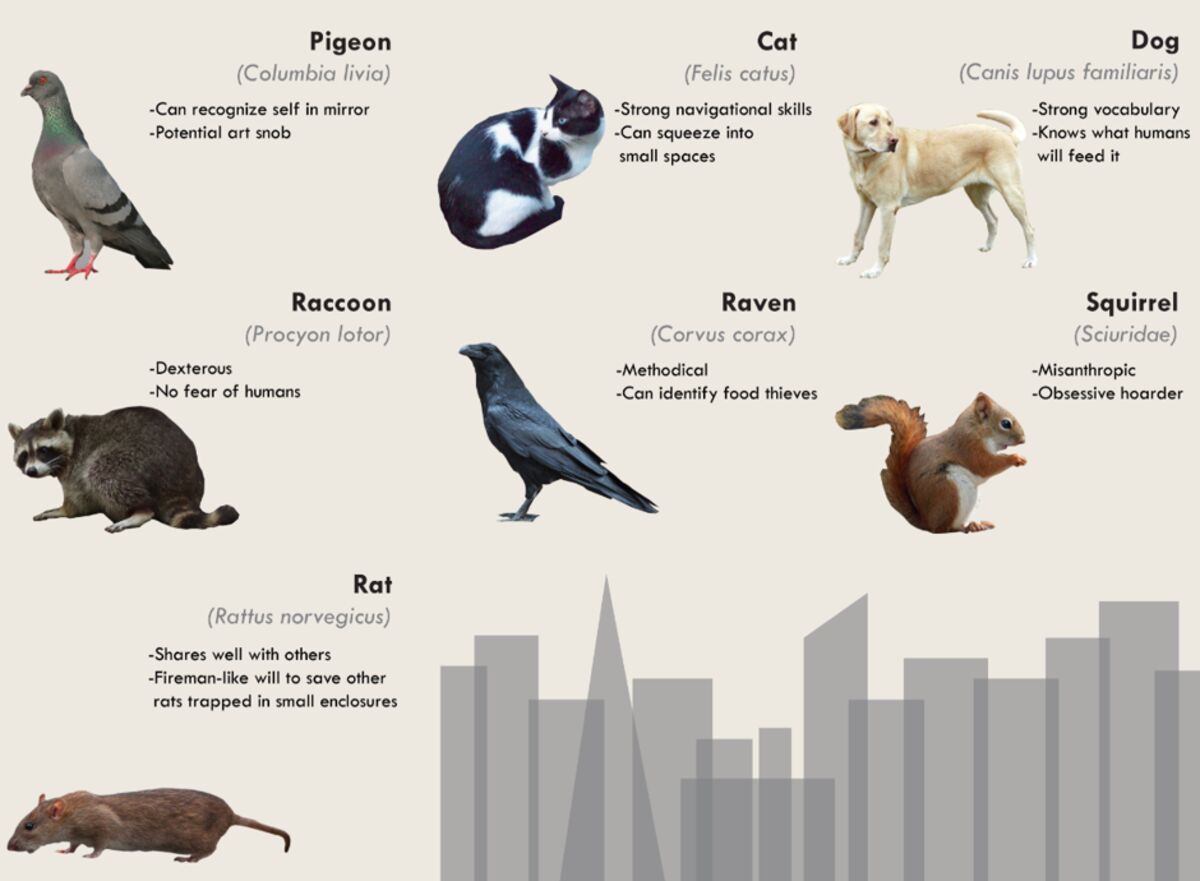Pigeons possess remarkable intelligence and navigation skills. These birds use visual landmarks and Earth’s magnetic field to traverse cities.
Pigeons are often seen as simple city dwellers, yet they exhibit surprising intelligence. They excel at navigating complex urban environments. Scientists have discovered that pigeons use a combination of visual landmarks and the Earth’s magnetic field for orientation. Their impressive memory allows them to recall specific routes and locations.
This skill helps them find food, shelter, and return to their nests with remarkable accuracy. Pigeons’ ability to adapt to city life demonstrates their cognitive capabilities. Understanding their navigation methods offers insight into avian intelligence and urban wildlife behavior. These birds are more than just city fixtures; they are adept navigators with unique skills.
The Pigeon’s Navigational Prowess
Pigeons are more than just city-dwellers. These birds have an incredible sense of direction. Their navigational prowess is a marvel. They can find their way home from hundreds of miles away. This ability has fascinated scientists for years.
City Skies As Highways
Pigeons use the city landscape like a map. Tall buildings act as landmarks. They remember these landmarks to navigate. This helps them find food and return home easily.
Birds use the sun’s position to guide them. They have an internal compass. It helps them know the right direction. Even in busy cities, pigeons rarely get lost.
| Landmark | Function |
|---|---|
| Skyscrapers | Act as tall landmarks |
| Bridges | Guide across rivers |
| Parks | Provide rest areas |
Homing Instincts Unveiled
Pigeons have a strong homing instinct. They can always find their way back. Scientists believe they use magnetic fields. This helps them navigate over long distances.
They also use their sense of smell. Different areas have different scents. They remember these scents to guide them home.
- Use magnetic fields
- Sense of smell
- Visual landmarks
Pigeons have amazed humans for centuries. Their navigational skills are unmatched. These city birds are true navigators of the sky.

Credit: www.bloomberg.com
Cognitive Skills Behind The Feathers
Pigeons are more than just city dwellers. These birds have amazing brains. Their cognitive skills help them thrive in urban jungles. From solving puzzles to remembering faces, pigeons are smart.
Problem-solving Abilities
Pigeons can solve complex problems. They can figure out how to get food from tricky places. In one study, pigeons learned to push buttons for treats. This shows they can learn and adapt.
Here are some ways pigeons show their problem-solving skills:
- Opening containers
- Navigating mazes
- Learning sequences of actions
Pigeons use their brains to overcome challenges. This helps them survive in cities.
Recognition And Memory
Pigeons have excellent memory. They can recognize human faces. They remember which people feed them and which chase them away. This helps pigeons avoid danger and find food.
Pigeons can also remember locations. They find their way home from long distances. Scientists believe they use the sun, landmarks, and Earth’s magnetic field.
Here’s a table showing some of their memory skills:
| Skill | Example |
|---|---|
| Face recognition | Remembering friendly humans |
| Location memory | Finding their way home |
| Sequence memory | Learning steps to get food |
These memory skills help pigeons navigate and survive in busy cities. Pigeons are not just birds. They are smart creatures with incredible brains.
Evolution Of Urban Adaptation
Pigeons have amazed scientists with their urban survival skills. They have adapted to city life brilliantly. This section explores how pigeons evolved to thrive in cities.
Survival In Concrete Jungles
Pigeons navigate bustling cities effortlessly. They find food in crowded places. These birds use their sharp vision to spot food scraps. Pigeons also recognize familiar faces in busy areas. They remember where food is available. Their memory helps them avoid danger and find safe spots.
Pigeons are great at finding shelter. They use tall buildings to nest and roost. Cities offer many hiding places for them. They use ledges, rooftops, and even bridges as safe havens. This helps them stay away from predators. Pigeons are very resourceful and creative in finding shelter.
From Cliffs To Skyscrapers
Pigeons originally lived on cliffs. Over time, they moved to cities. Their cliff-dwelling habits helped them adapt. Skyscrapers and tall buildings mimic cliffs. Pigeons feel at home on high ledges and rooftops. They use these heights to spot food and danger. This natural instinct makes city life easier for them.
City pigeons have learned to exploit urban resources. They drink water from fountains and puddles. They scavenge food from garbage bins and sidewalks. They also eat seeds and crumbs left by people. Their diet has diversified with urban living.
Pigeons’ adaptability is impressive. They have adjusted their nesting habits. They build nests with urban materials like paper, twigs, and plastic. This flexibility showcases their intelligence and survival skills.

Credit: www.newscientist.com
Pigeons In Scientific Research
Pigeons are not just common city birds. They are intelligent creatures. Scientists study pigeons to learn about animal intelligence and navigation.
Avian Intelligence Studies
Research shows pigeons can recognize themselves in mirrors. This is a sign of self-awareness. Pigeons can also differentiate between different artworks. They can remember hundreds of images for long periods. These studies reveal that pigeons have a high level of intelligence.
In one study, pigeons learned to categorize objects. They sorted images into categories like trees and people. This ability is similar to how humans categorize objects. Scientists use these findings to understand the brain’s functions.
Contributions To Navigation Theories
Pigeons have an exceptional sense of direction. They can find their way home from long distances. Scientists study pigeons to learn about navigation. They use pigeons to test theories about how animals find their way.
One theory is that pigeons use the Earth’s magnetic field for navigation. Another theory is that pigeons use visual landmarks. They might also rely on the sun’s position. These theories help us understand how other animals, and even humans, navigate.
Researchers also discovered pigeons have a special brain region for navigation. This part of the brain helps them map their environment. These findings can help improve navigation technology for humans.
Magnetic Sense And Spatial Orientation
Pigeons are more than just city dwellers. They possess a surprising intelligence, especially in their ability to navigate urban landscapes. This is largely due to their magnetic sense and spatial orientation. These abilities enable pigeons to find their way with incredible accuracy. Let’s dive into the fascinating world of pigeon navigation.
Decoding The Earth’s Magnetic Field
Pigeons have an extraordinary ability to detect the Earth’s magnetic field. This sense acts as an internal compass. They use it to find their way home from unfamiliar places. Scientists believe pigeons have special cells in their beaks. These cells contain magnetite, a magnetic mineral.
When pigeons fly, these cells help them sense the Earth’s magnetic field. This ability is crucial for long-distance navigation. It allows them to travel hundreds of miles without getting lost. Pigeons can even navigate during cloudy or foggy weather when visual cues are not available.
Mental Maps In Bird Brains
Pigeons also create mental maps of their surroundings. These maps help them remember key landmarks and routes. They use their sharp eyesight to recognize buildings, roads, and other structures. This helps them find food and return to their nests efficiently.
Pigeons combine their magnetic sense with these mental maps. This dual navigation system makes them highly effective navigators. Their brains can store detailed spatial information. They can even recall this information after long periods.
| Navigation Method | Description |
|---|---|
| Magnetic Sense | Using Earth’s magnetic field for direction |
| Mental Maps | Remembering landmarks and routes |
Pigeons are fascinating creatures with complex navigation skills. Their ability to use magnetic sense and mental maps is truly impressive. Next time you see a pigeon, remember how smart they are!
Social Behaviors And Communication
Pigeons are more than just city dwellers. Their social behaviors and communication skills are fascinating. These birds have complex ways to interact with each other.
Flock Dynamics
Pigeons are known for their strong flock dynamics. They rely on group behavior to stay safe. Pigeons use the flock to find food and evade predators.
In a flock, pigeons maintain a strict hierarchy. The leader guides the group, making decisions and setting the pace. This structure helps them navigate the city efficiently.
- Leaders are often older and more experienced.
- Followers learn from the leader’s actions.
- Flocks can range from a few birds to hundreds.
Courtship And Mating Rituals
Pigeons have unique courtship and mating rituals. Males perform a series of actions to attract females. These actions include:
- Strutting and puffing up their feathers.
- Coos and soft calls to get attention.
- Circling the female in a dance-like manner.
If the female is interested, she will respond positively. The pair then bonds and often mates for life. This bond ensures they can raise their young together.
| Behavior | Purpose |
|---|---|
| Strutting | Attracting the female |
| Feather Puffing | Showing health and strength |
| Coos | Communication and bonding |
These social behaviors show that pigeons are intelligent. They use complex interactions to thrive in urban environments.
Challenges And Threats In Urban Areas
Pigeons, often seen as simple city birds, face many challenges in urban areas. Despite their intelligence and adaptability, they encounter threats that affect their survival.
Predators And Pollution
Pigeons face numerous predators in cities. Common predators include hawks and cats. These animals hunt pigeons for food, making urban life dangerous.
Another significant threat is pollution. Cities are full of pollutants that harm pigeons. Polluted air and water can cause health issues. Pigeons may also ingest harmful substances from litter.
| Threat | Impact |
|---|---|
| Predators | Increased mortality |
| Pollution | Health problems |
Human-wildlife Conflict
Human-wildlife conflict poses another challenge. Pigeons often come into conflict with people. They are sometimes seen as pests, leading to efforts to control their populations.
People may use netting, spikes, or poisons to deter pigeons. These methods can harm pigeons and reduce their numbers.
- Netting blocks access to nesting sites.
- Spikes prevent perching and roosting.
- Poisons can cause illness or death.
Such conflicts highlight the challenges pigeons face in coexisting with humans in urban settings.

Credit: www.cambridgeday.com
Conservation And Appreciation
Pigeons often go unnoticed in urban environments. Yet, these birds exhibit remarkable intelligence and adaptability. This section explores the importance of conservation and how we can change our perceptions.
Protecting Urban Biodiversity
Urban areas often lack natural habitats. This makes biodiversity conservation crucial. Pigeons play a vital role in city ecosystems.
- Pigeons help control insect populations.
- They serve as food for urban predators.
- Pigeons disperse seeds, promoting plant growth.
To protect these birds, we need to create pigeon-friendly spaces. This includes:
- Providing safe nesting areas.
- Ensuring access to clean water and food.
- Reducing the use of harmful chemicals.
Changing Public Perceptions
Many people view pigeons as pests. Changing these perceptions can help in their conservation. Education plays a key role here.
Here are some steps to change public attitudes:
- Awareness Campaigns: Inform people about the intelligence of pigeons.
- Community Events: Organize bird-watching tours and talks.
- School Programs: Teach children about urban wildlife.
By appreciating pigeons, we can ensure their protection. This helps maintain urban biodiversity.
| Action | Impact |
|---|---|
| Create nesting areas | Increases pigeon population |
| Educate the public | Reduces negative perceptions |
| Reduce chemicals | Improves bird health |
Frequently Asked Questions
How Do Pigeons Navigate Cities?
Pigeons navigate cities using a combination of visual landmarks, the sun’s position, and Earth’s magnetic field. They have excellent spatial memory which helps them remember routes and locations.
Are Pigeons Really Intelligent Birds?
Yes, pigeons are highly intelligent birds. They can recognize themselves in mirrors, differentiate between artworks, and even understand abstract concepts like time and space.
Do Pigeons Use Earth’s Magnetic Field?
Yes, pigeons use Earth’s magnetic field to navigate. They have specialized cells in their beaks that detect magnetic fields, aiding in long-distance travel.
Can Pigeons Recognize Human Faces?
Pigeons can recognize human faces. Studies show they can differentiate between familiar and unfamiliar faces, demonstrating impressive cognitive abilities.
Conclusion
Pigeons are more intelligent than we often realize. Their navigation skills are impressive and beneficial in urban settings. These birds adapt to city life, showing remarkable problem-solving abilities. Understanding pigeon intelligence can change how we view them. Appreciate their role and marvel at their urban navigation prowess.











